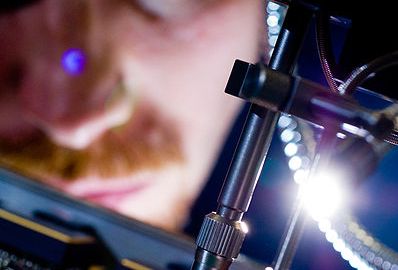Is Computer Progress at an End?

What’s the Latest Development?
A paper presented this summer at the International Symposium on Computer Architecture claims that Moore’s law—the axiom that has correctly predicted a doubling in computer speed every two years—is about to fail us. The problem is that “the most advanced microprocessor chips have so many transistors that it is impractical to supply power to all of them at the same time.” While experts say the chips wouldn’t melt away, component parts could become fused returning inaccurate computing results and rending the chip useless.
What’s the Big Idea?
If the problem of power accessibility overturns Moore’s law, the exponential rate at which computer power has expanded will be over. The kinds of rapid achievements in consumer electronics many have come to take for granted might have to yield to slower and less frequent technological advances. “There will not be new PCs, new smartphones, new LCD TVs, new MP3 players or whatever might become the new gadget that creates an overnight multibillion-dollar industry and tens of thousands of jobs.”





